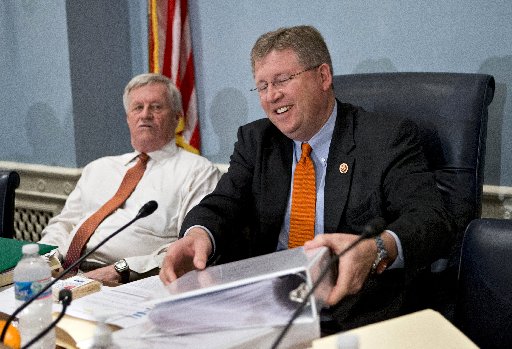UPDATED: May 18, 12:16 p.m.
The Republican-controlled House Agriculture Committee on Thursday approved a version of the 2013 farm bill that cuts more than $20 billion in funding for the Supplemental Nutrition Assistance Program (SNAP) over 10 years.
A handful of House Democrats have vowed to oppose the legislation until some of the SNAP funding is restored, as George Zornick reported in The Nation.
“The $20.5 billion cut in SNAP is a poison pill,” said Rep. Jim McGovern, D-Mass., at a Thursday press conference. “It means that we shouldn’t be supporting the farm bill.”
Farm bills are sprawling pieces of legislation that regulate, fund, and subsidize a variety of programs related to farming, agriculture, and food production. In addition to cutting food stamps, this particular bill would cut a certain kind of farming subsidy call direct payments. The bill is expected to reach the House floor for a full vote in June.
The Democratically led Senate Agriculture Committee approved its own version of the farm bill on Tuesday, which also implemented cuts to food stamps but by only $4.1 billion.
Nearly two million people could lose SNAP eligibility if the House cuts go through, according to a report from the Center on Budget and Policy Priorities. A projected 210,000 children would lose eligibility for free school meals as well.
Food stamps are a perennial target for conservative deficit hawks, who typically argue that spending on the program has spiraled out of control under President Obama. Former GOP presidential candidate Newt Gingrich famously labeled Obama the best “food stamp president” because “more people have been put on food stamps by Barack Obama than any president in American history.”
In his most recent budget plan, former vice presidential candidate Rep. Paul Ryan recommended cutting SNAP funding by a cumulative $135 billion over the next decade.
True cost of food
SNAP spending has increased dramatically over the past few years, for a number of reasons. Between 2007 and 2011, the program’s cost rose by 70%, in part due to the 2009 American Recovery and Reinvestment Act, which temporarily increased benefits for food stamp recipients.











